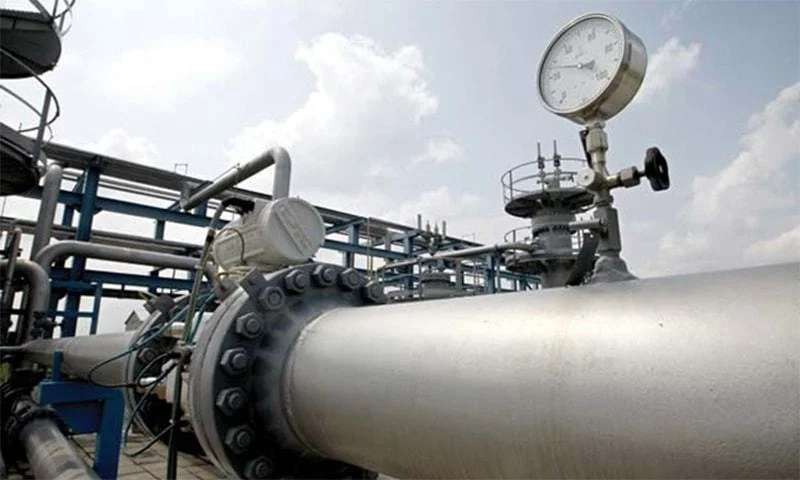Pakistan is ranked in 29th position based on natural gas reserves globally as the total extractable potential is reported at around 24 trillion cubic feet, however, 4 billion cubic feet is the daily gas production.
This was revealed during the findings of a gas monitor report presented by Dr Amanullah Mahar, Director Center for Environmental Sciences, University of Sindh, Jamshoro.
The report said the biggest field of natural gas is in the Sui region of Baluchistan accounting for 6 per cent. The country has proven reserves equivalent to 12.0 times its annual consumption. This means it has about 12 years of gas left.
As Pakistan is facing a severe natural gas shortage for the last couple of years, it has started relying heavily on Liquefied Natural Gas (LNG), however, the government needs to explore other energy sources to save the environment as well as financial spending on the LNG import, it added.
READ THIS
Buy our gas only in rouble, dollar isn’t acceptable: Russia
Germany suspends Nord Stream 2 gas pipeline from Russia
The alarming situation for the country is that the supply of natural gas is declining day by day from domestic sources as the consumer need is continuously increasing. Over the last decade the consumption of natural gas has increased resulting in the record import of LNG, the report maintained.
It said the biggest consumer of natural gas is the power sector followed by residential. There are some gas losses between 11 per cent – 14 per cent due to illegal theft and other reasons.
Initially, LNG was introduced to meet the supply gap but now it has a share of 25 per cent of the gas supply for LNG power plants in Pakistan. The spot prices have affected the purchasing strategy of LNG which is left up to 40 per cent of supply, said Dr Mahar while presenting his findings.
He added, “LNG is a very high carbon-intensive fuel and cannot be called “transition” fuel source to a cleaner energy system. Fossil gas (methane) can be leaked from the regasification, transport, consumption and processing of it. After carbon dioxide, methane is the second most abundant anthropogenic greenhouse gas and is responsible for 20 per cent of worldwide atmospheric emissions.
Methane is 25 times more potent than CO2 at absorbing atmospheric heat. In addition, the installation of gas pipelines and the construction of gas infrastructure may leak methane gas into water supplies and the environment.


